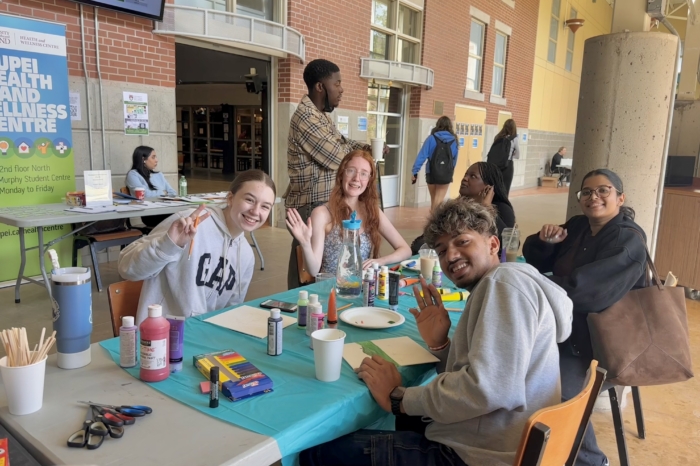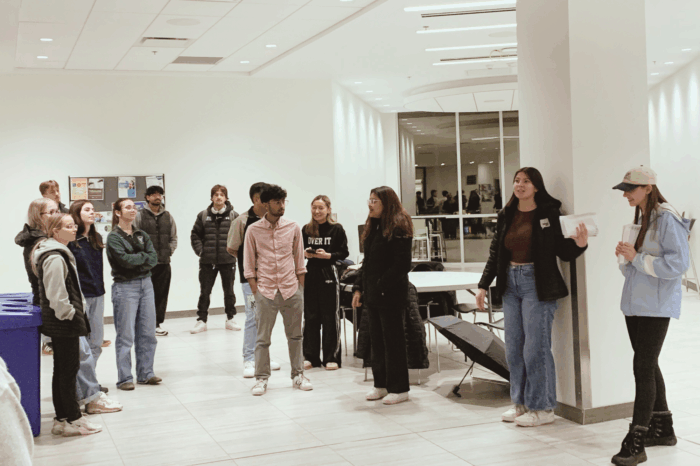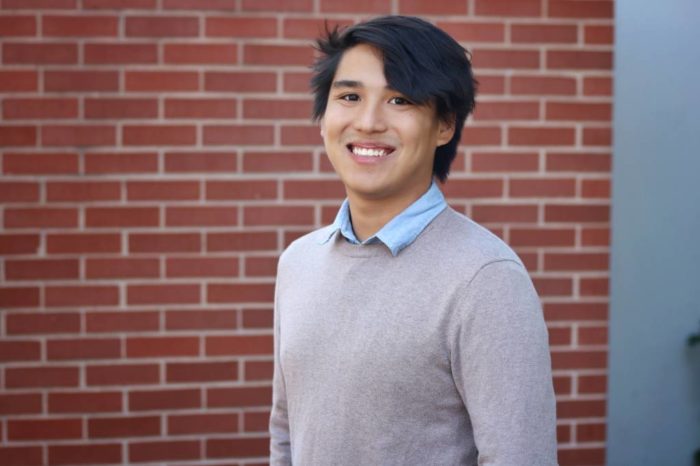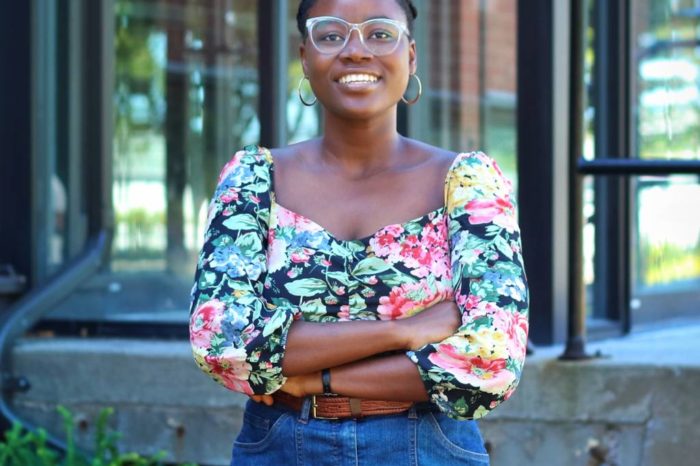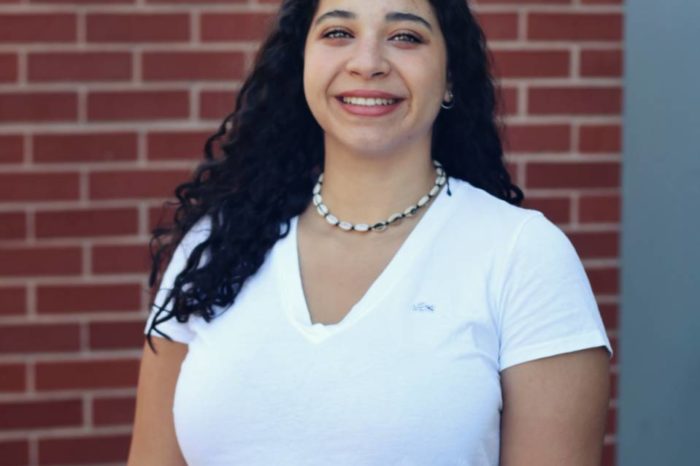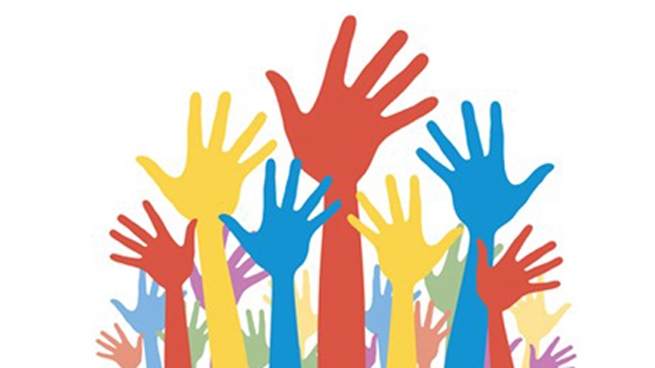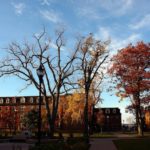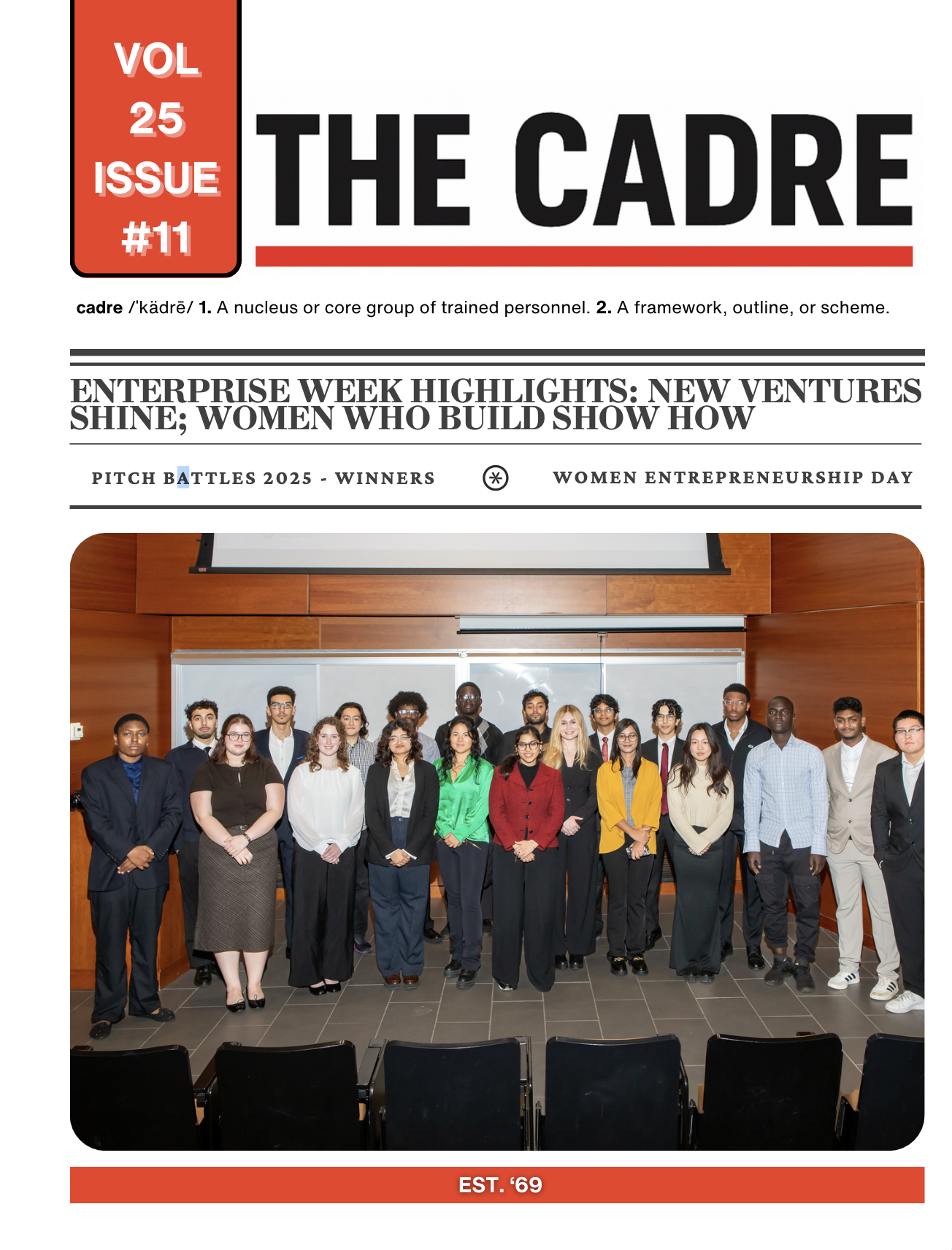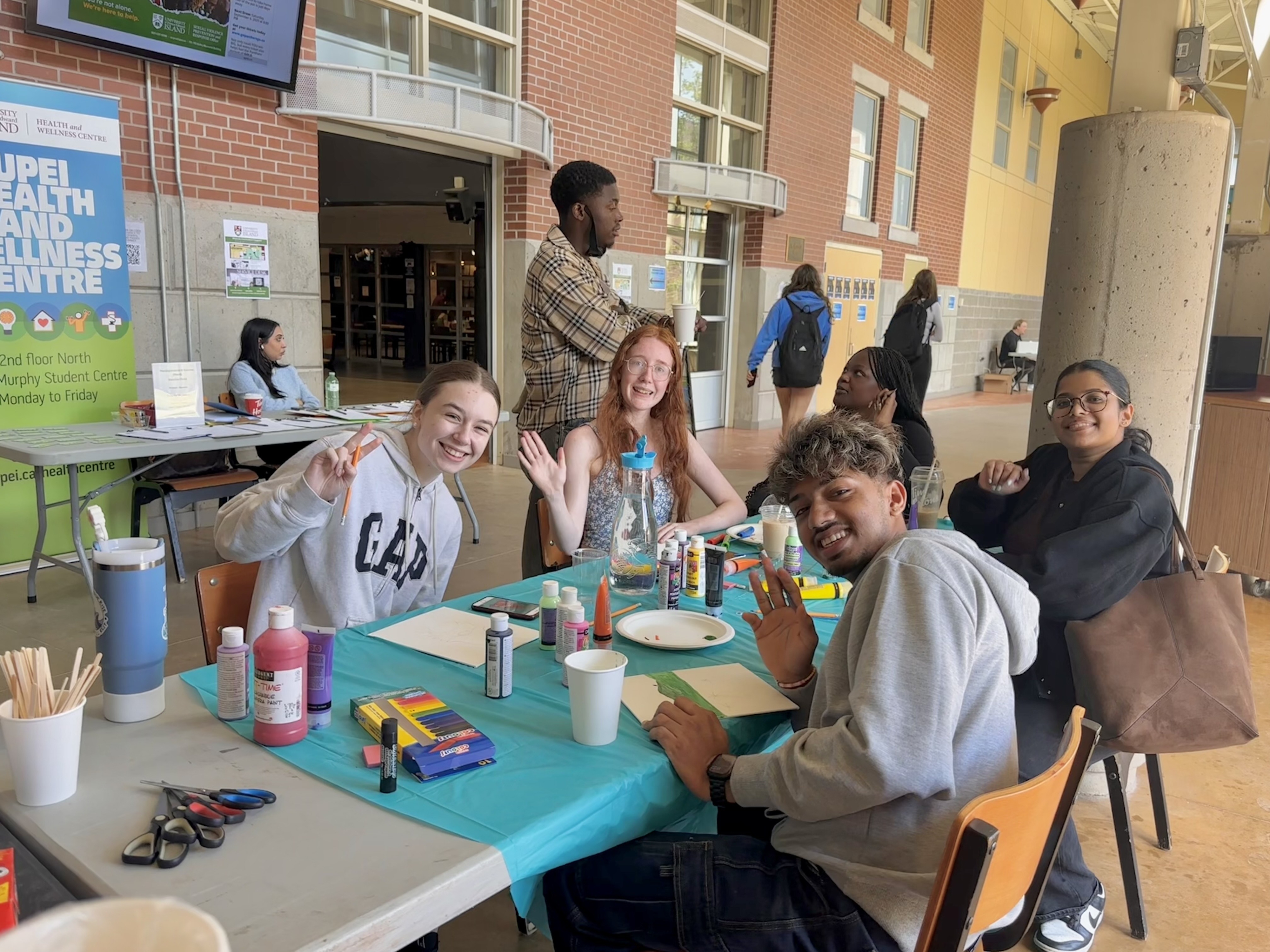By: Connor Mycroft
The saying “who’s yer fahder?†is well known to anyone who has spent even the slightest amount of time on PEI. It provides a reference point for new acquaintances. It can be a conversation starter (or ender). People become engaged in who you are, and opportunities can arise for you that you otherwise wouldn’t be aware of. Because of how small our island is, the odds are high that the various people you come across are related to you somehow. 6 degrees of separation becomes more like 2 here. That is, however, so long as you are from here.
For people that are either “from away†or who’s parents are “from awayâ€, this seemingly innocent colloquialism can at times work against you. If you are from away and have had this experience, you know exactly what I mean. Feigned initial interest can quickly dissolve into dismissiveness.  Which is why with this particular edition, I wanted to focus on these people who are from away. Some of them are from other provinces or other countries. The stories featured here may seem particularly long, but that’s because I felt it was important to show that they have just as important a story as anyone else.
*******

Shiham Marouf – Part I
“My dad was a diplomat before he retired, but he has quite a story. When he started off I think he had 7 sisters and one brother and his parents passed away when he was very young, so he was the man of the house by the time he was 14. He had to go to school and work at the same time, but he also grew up being a kind of genius. He worked at a corner store, but the man he worked for wanted him to go to school. He actually did really well. He struggled but…
My parents are both from villages. He was the first from his family to live and work abroad, which is pretty cool. He started off as a police constable and also a science teacher. At some point, while he was a police constable, there was an ad in a newspaper for an entrance exam to work in the foreign ministry. He decided to do it and got selected, and worked there for the next 25 years.â€

Stephen Wilfeard
“My father, Walter Wilfeard, he’s something. I don’t know much about his childhood. What I know is that both of his parents and his oldest brother all passed away by the time he was 14, so he kind of had a rough childhood, which I think made me have a better childhood if that makes sense. He didn’t want me to have the same childhood that he had since both his parents passed away and then his older brother passed away, so he moved around quite a bit and had a troubled childhood.
He didn’t actually graduate from high school. He says he got his GED but we aren’t actually sure. He works at a printed circuit company that makes printed circuit boards and cable assemblies, and he’s half an electrical engineer and half a salesman, so he designs and sells printed circuit boards, without even a high school diploma.â€

Kevin St. Clair – Part I
“He’s married to my step-mom Connie, and they were also tired of Ontario and wanted to move here and start a homestead. Like a self-sustaining farm where they could grow their own food, raise their own animals, that sort of thing. They’ve been working on that a lot right now because they have their own bees that they get honey from, and their own chickens and gardens and stuff. Kind of living the dream I guess.
In terms of a defining quality, I would say the man’s determined. When he wants to do something he’ll find a way to do it. Come hell or high water, whether it makes him frustrated or pisses him off, in the end, he’ll make it happen.â€

Shiham Marouf – Part II
“I can’t remember what his position was in Iraq, and my mom and dad were both there during the Iran-Iraq War in the 80’s. At the time my dad was the third in command, with the ambassador being the first, and my parents would tell me stories about how they had to leave and they had to house all the other Sri Lankans. They had to pawn off all the equipment, like pots, pans, and antiques, so they could feed all of them. Their job was to ship them all away before they could leave, so apparently it was pretty intense. I wasn’t alive yet.
From what I can remember in my life, I was born in 1992, he was being posted to Korea in 1994. Before that, he was in Kuwait. Because he was posted in a variety of places, at the time it made things really hard. You know, we would go to a new place and it would take about a year for me to get comfortable and become friends with people. I would always be quiet in the first year. Once I made my friends it was amazing, but after two or three years it would be goodbye. It made things really tough because I never grew up with real, childhood best friends. It took a huge emotional toll.â€

Grace Learie
“He went to Memorial Univeristy and has a degree in I think History, and maybe Political Science? He owns his own hearing aid company, so pretty not applicable to what he went to school for.
In BC it was a pretty nice life, but we needed a change. It was always busy and they hated commuting. I would only see my parents at night around 7pm and then I’d go to bed and I wouldn’t see them again until the next night. It took them like two hours to get to work, so it was a pretty hectic lifestyle. But he kept the family together because we moved here and it was a completely different for everybody, and I hated moving but he managed to keep everyone together.â€

Emilie Maquignaz
“My dad is a mechanical engineer and works for General Motors. I don’t understand exactly what he does, but basically, he modifies cars to their environment, so right now he’s working in Singapore doing that for the Middle East and Asia, which is pretty cool. There’s lots of test driving new cars before they get on the market. He’s very passionate about his job.
My dad is always there for me. When we are actually together he is always trying to make sure we actually spend time together. He’ll ask me if I want to go for a walk, run or hike. Do something like that. Despite the nature of his work, he was usually in my life. He would travel a lot for work but it wasn’t too much. When I was living at home he would be gone for maybe 4 or 5 weeks out of the year. He did miss a lot of my birthdays growing up but I would never hold that against him. Birthdays have never been that important to me, so that’s fine.
My dad always tried to stay positive and show us different experiences that we could have. He made sure we traveled and got to see the places that we were around. So when we were in Korea we got to see so much of Asia as well. It was a fantastic experience.â€

Kevin St. Clair – Part II
“My parents have been separated since I was 8, and seeing how he was able to father me at a distance, because when I was younger I was only able to see him every second weekend, so just the dedication that he put into that and how he managed to squeeze every last drop out of those weekends to make them work. That spoke a lot to me about his character as a father. Just how he made that work, and how he managed to see the positives in it.â€

Shiham Marouf – Part III
“It was rough. Making friends… it was rough. But on the plus side, we did have somewhat of a privileged lifestyle. We got to travel a lot, and we had diplomatic immunity so wherever we went I didn’t have to worry about things. The only time I ever abused it was when we lived in Lebanon with parking tickets. I would park anywhere and never worry about them. I had a huge pile and my friends were like “let’s burn them!†so we just burned all the parking tickets. Â
We also got to know our whole family. Every year we would visit my parents’ village, and on my mom’s side alone I have over 50 first cousins. So we would go for about a week and everyone would come together with drums and sing together, gather at an aunt’s house and eat together. It was cool because even though I grew up with a privileged lifestyle as a diplomat’s kid when we visited the village it was back to being humble. It was sleeping on a small mat on the floor, bathing in a well, or shitting in a squatter. So I got the best of both worlds I guess.
The cool thing about my dad and mom was even though we were well off they wouldn’t just give us money to go off and waste it. They were always pretty adamant about what the money was being used for. Just because we have it doesn’t mean you just get to throw it away on stupid things.â€
